SAP and Workday are two of the worlds prominent ERP, finance and HRIS software vendors and a top choice for fast growing or large organizations. In this post, we'll compare SAP versus Workday across various different factors that are crucial when evaluating financial management, ERP and HR systems.
1. Functionality
2. Architecture
3. User Experience
4. Industry Fit
5. Costs
6. Implementation
Functionality
SAP isn't a software product, it's a company that creates software products, and lots of them. SAP's portfolio spans almost every type of enterprise software from CRM to HRIS, expenses management, spend management, ecommerce, field service management and of course enterprise resource planning (ERP).
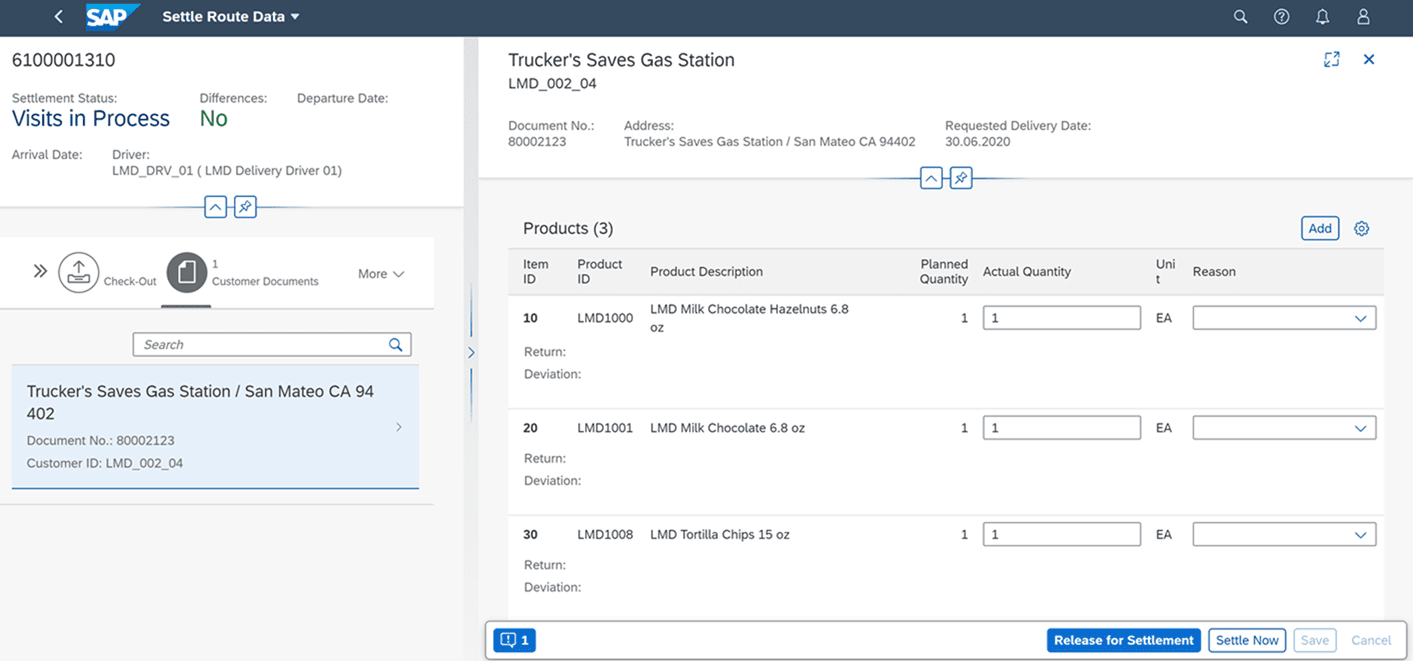
So when comparing SAP vs Workday, you need to understand exactly what you are comparing as SAP can offer an entire suite of products and applications, whereas Workday is a little bit more specialised in the areas of finance, HR and planning.
SAP S/4 HANA & SuccessFactors Vs Workday Finance & HR
Most organizations will be comparing SAP's flagship ERP product SAP S/4 HANA and the HR solution SAP SuccessFactors to Workdays human resources and financial management solutions.
In essence, SAP provides everything that Workday can provide and more.
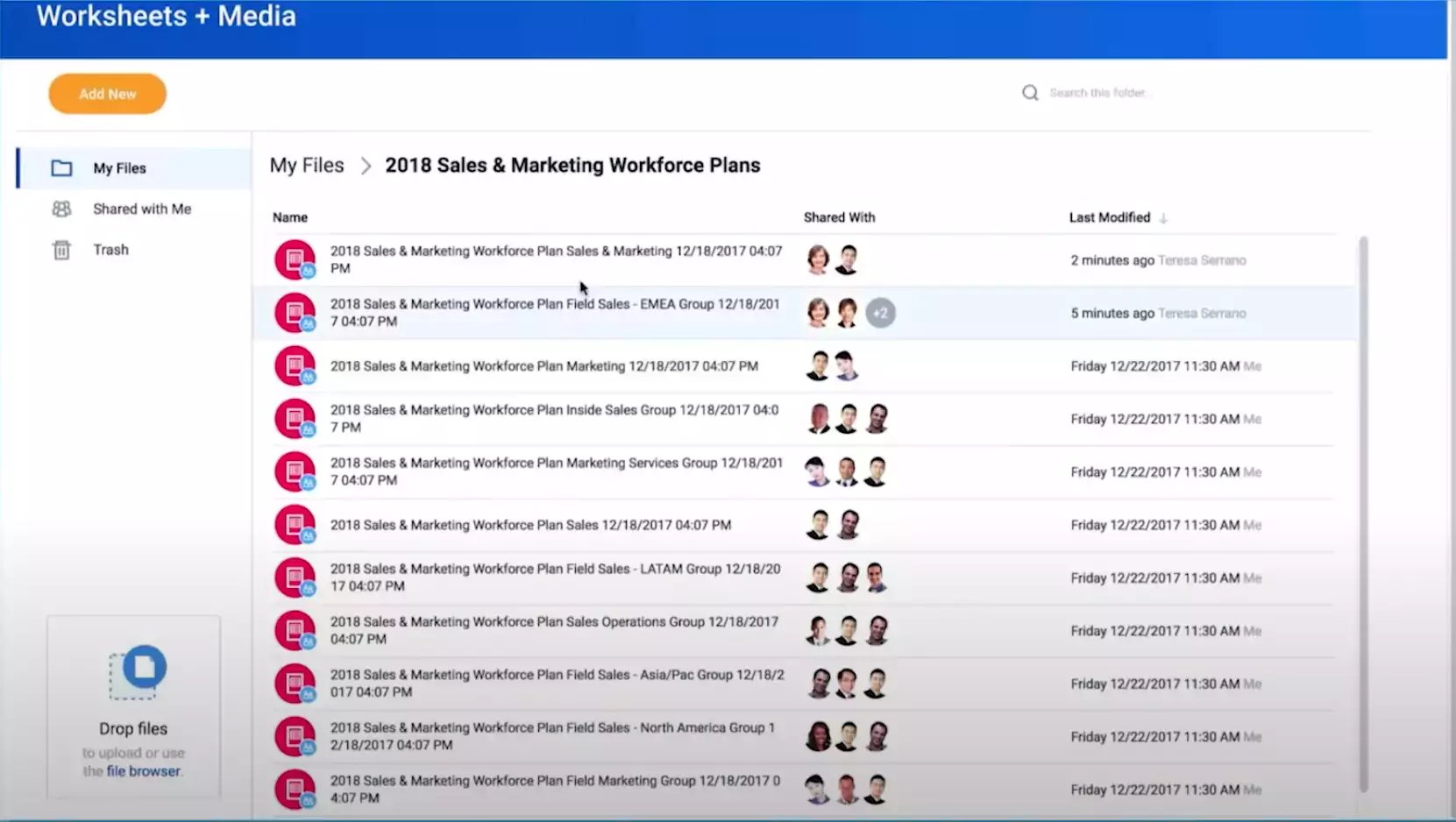
Workday is focussed only on providing human resource management and financial management capabilities and with its acquisition of Adaptive Insights in 2018, it can also provide market leading capabilities in enterprise planning.
Get SAP S/4 HANA Pricing
On the other hand, SAP offers a complete ERP solution that can cover financial management, supply chain, purchasing, inventory, production and much more with a strong background in powering the worlds most complex organizations from pharmaceuticals to manufacturing, oil and gas and beyond.
If you need more than an ERP and want to sell your products online, manage engineers in the field or perform complex purchasing and supply chain operations, then SAP also has products such as SAP Commerce, Field Service Management, Ariba and more to complete the picture. Whereas Workday relies on integrating with third party solutions.
Read our full guide to Workday
So, should you just buy SAP then? Maybe, maybe not. Read on...
Architecture
Workday
A key differentiator for Workday is it's message of being a single platform for finance and HR, something that SAP can't claim to the same extent - although it's a message which is becoming diluted as Workday makes its own acquisitions.
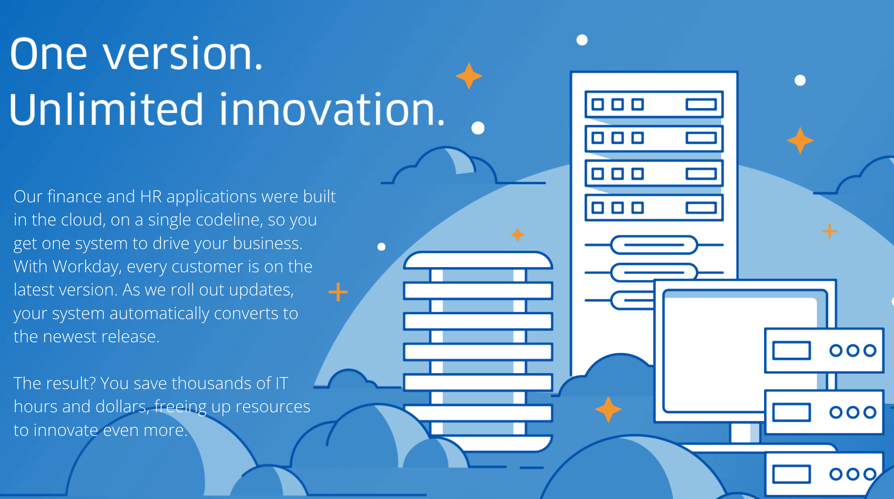
Workday plays heavily on it's 'power of one' message in its marketing and this will be a core message portrayed by their sales reps when you evaluate the solution.
SAP
SAP offers various products for ERP, HRIS, Customer Experience, Analytics and beyond - all of which can offer a complete portfolio of solutions that can help organizations to digitise almost any process within their business.
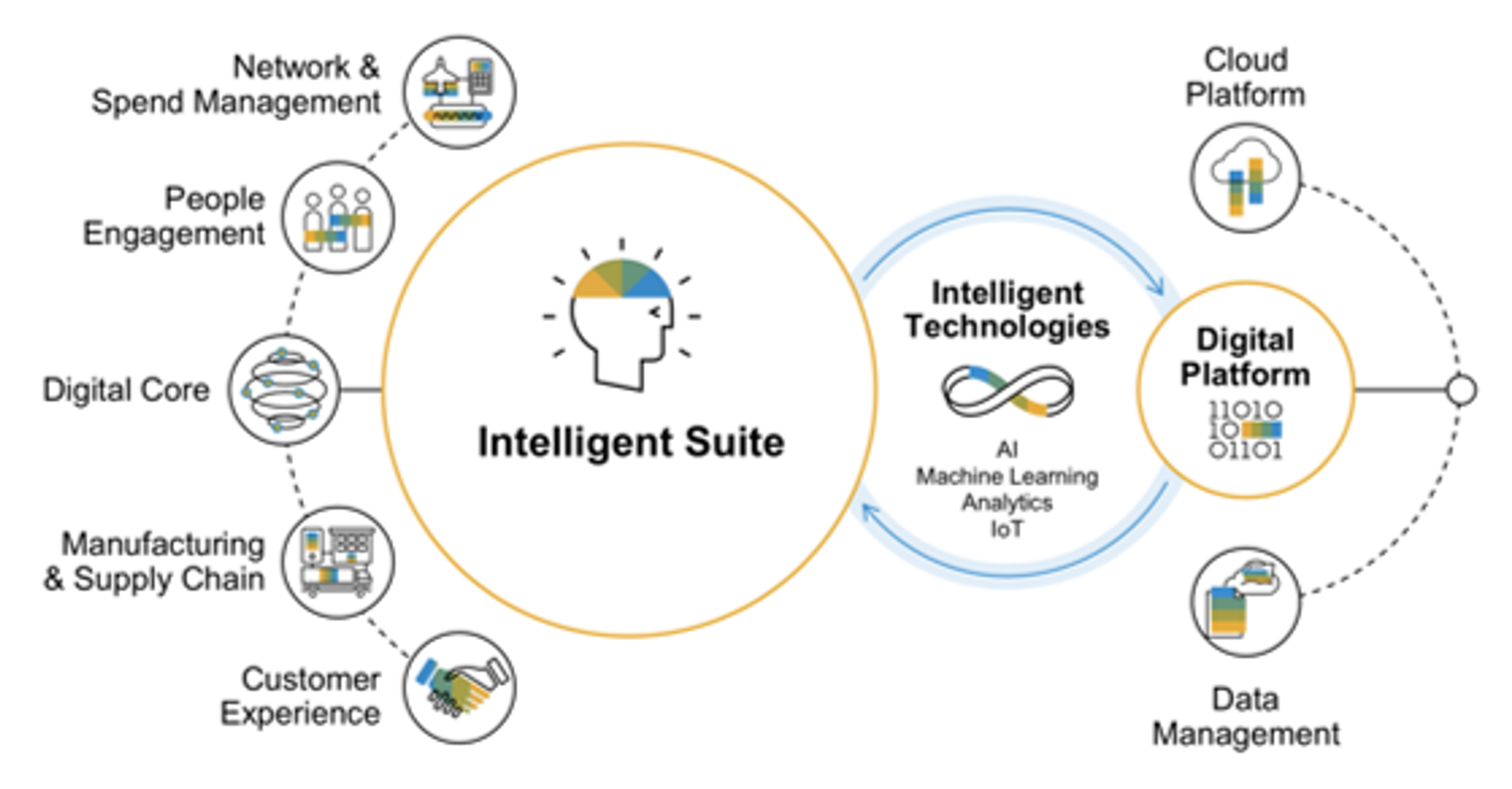
However, the architecture of SAP is fundamentally different to Workday in that each application typically has a different database and therefore processes and data need to be integrated on an individual basis.
User Experience
A key benefit of having finance and HR on one platform is the benefit this has on the user experience of Workday. Processes run in one user interface end-to-end which is available on any device.
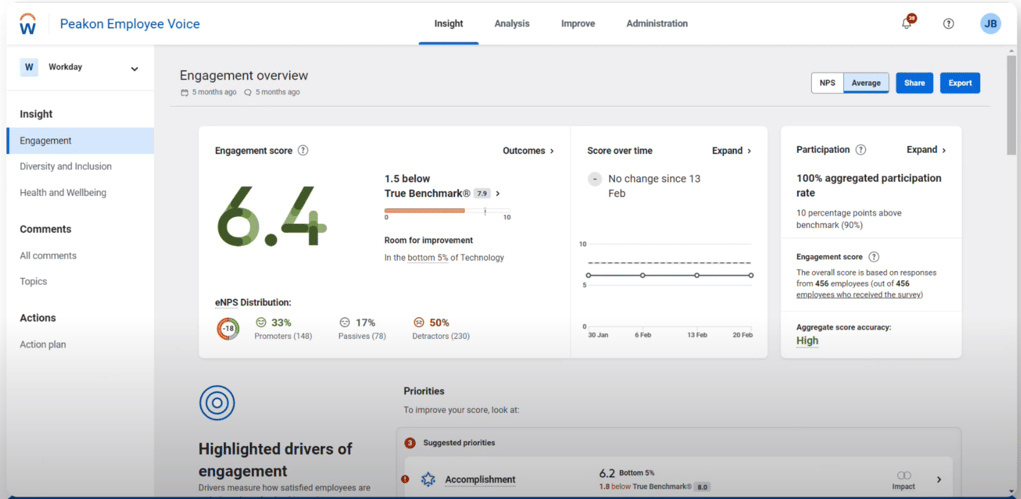
The same can't be said for SAP to the same extent. Although both SAP S/4 HANA and SuccessFactors do run the same style of user interface, they are fundamentally two different products which are linked via API for data and processing.
Industry Fit
Manufacturing
Manufacturing companies comparing SAP and Workday typically decide on SAP in our experience. SAP is entrenched in manufacturing industries such as pharmaceuticals, automotive, high tech and beyond and has developed specific functionality to accomodate the needs of these organisations into its entire suite of products.

On the other hand, Workday does not offer a complete ERP solution, instead focussing on financial management and accounting and human resources specific needs like recruiting, onboarding, timesheets, learning and development and so on.
That means that you won't be able to manage stock, production and supply chain in Workday and will need to integrate with specific third party applications to complete the picture.
For manufacturing organisations only looking for HR or finance capabilities, then Workday is a great fit. However, most organisations will want to standardise their IT platforms and for this, SAP is a great choice.
Professional Services
Professional services firms can be spoilt for choice when evaluating SAP vs Workday which is where both solutions have perhaps the most crossover and have far less to differentiate themselves. Lets compare SAP vs Workday across many of the features and modules used by professional services companies.
Read our complete guide to SAP S/4 HANA:
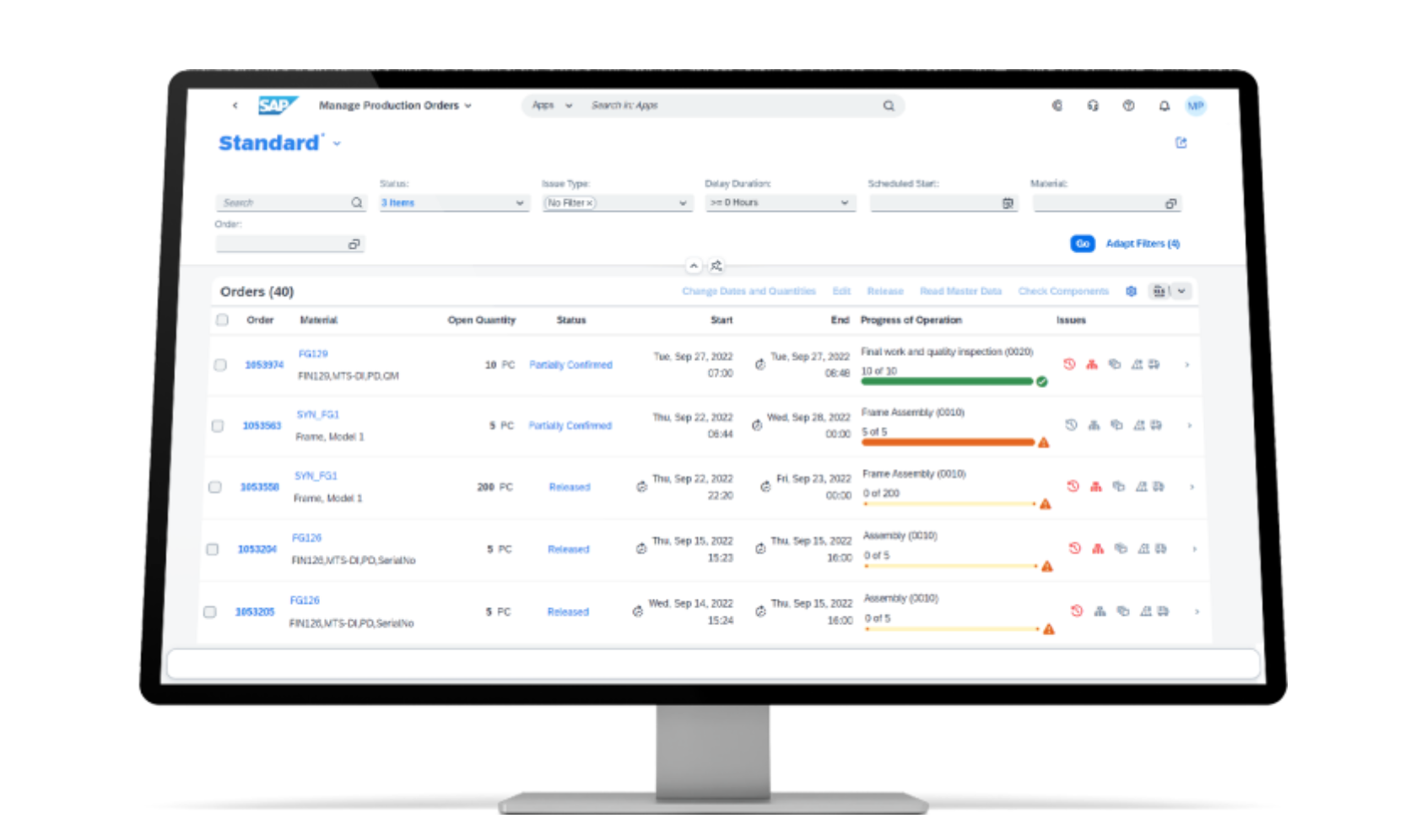
Project and Resource Management
Workday provides integrated project and resource management functionalities designed to help professional services firms plan, execute, and analyze their projects. Its resource management capabilities allow for effective staffing by matching project requirements with employee skills and availability.
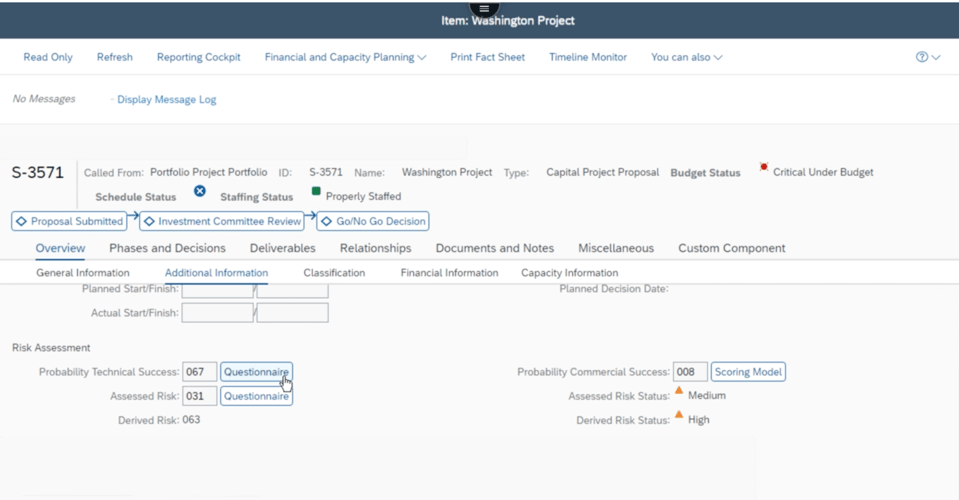
SAP S/4HANA offers robust project management capabilities, including project planning, execution, and billing. It's well-suited for managing complex projects and can handle various billing arrangements like fixed price, time and materials, or milestone-based billing. This integration ensures that project-related financials are closely aligned with the overall financial management of the company.
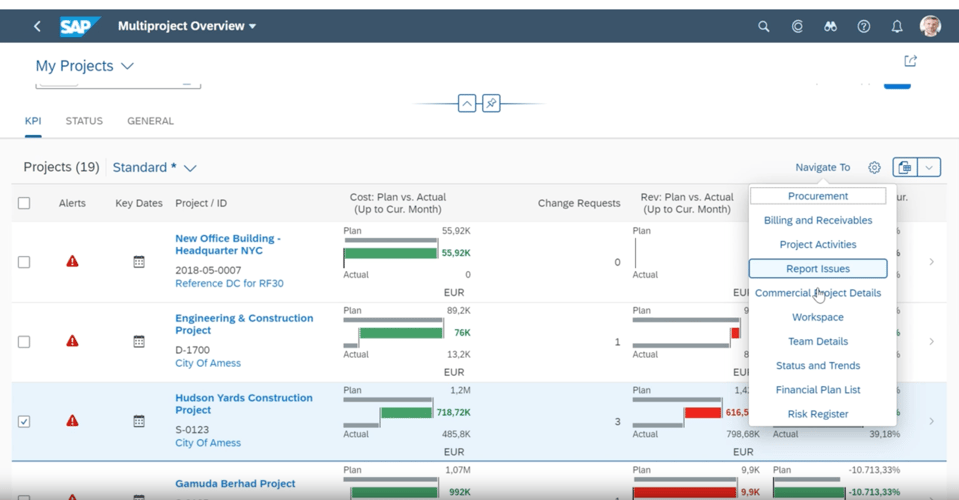
Financial Management
Workday's financial management suite is comprehensive, offering capabilities that rival those of SAP S/4HANA. It includes core accounting, revenue management, project billing, and financial reporting, tailored to the needs of services firms. Its analytics and reporting tools give real-time insights into financial performance.
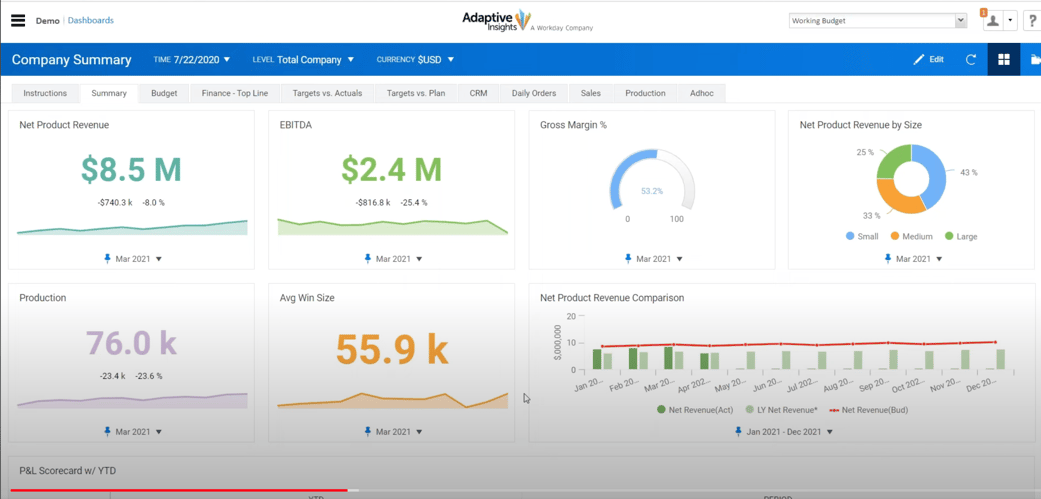
As an ERP solution, SAP S/4HANA excels in financial management, offering comprehensive features for accounting, financial reporting, and compliance. This is crucial for professional services firms that need to maintain tight control over their finances, manage cash flow efficiently, and meet various regulatory requirements.
Human Capital Management
Workday's HCM suite is a strong competitor to SuccessFactors, offering a wide range of functionalities including talent management, workforce planning, learning, and development. It's known for its user-friendly interface and cloud-native design, which can enhance employee experience and operational efficiency in HR processes.
SuccessFactors shines in managing the employee lifecycle, from recruiting and onboarding to performance management and development. It helps professional services firms attract and retain top talent, develop their skills, and ensure high levels of employee engagement and productivity.
Comparing Costs
The cost of implementing SAP S/4 HANA & SuccessFactors versus Workday are typically quite similiar and ultimately will depend on the size of your project, the scope, the resourcing model and the level of customization or configuration, as well as integration with existing business systems.
SAP vs Workday License Costs
SAP offers its flagship ERP S/4 HANA in various different guises, from On-Premise to Private Cloud and Public Cloud and as such, the system can be purchased in the Cloud or as an On-Premise product - so either as a subscription or as a one off purchase. With that said, although the cost of buying SAP On-Premise is typically up front, you will also need to pay an annual maintenance cost of 22%.
On the other hand, SAP SuccessFactors is only available as a Cloud solution, meaning you'll need to sign up to an annual subscription to use the service.
On the other hand, Workday is only available as a Cloud solution and does not have any On-Premise alternative, which means your only option is to sign an annual subscription.
The cost of S/4 HANA and SuccessFactors is typically around $160 - 200 per month for a full user, however there will be additional costs for each module or piece of advanced functionality that you add.
The cost of Workday is typically $175 - 225 per user, however like SAP, it also offers cheaper user types if you need to give some of your employees access to the system to perform a few simple tasks.
Click here to get a quote for SAP or Workday.
Workday versus SAP Implementation Costs
The cost of implementing Workday versus SAP is typically the same and in our experience, Workday can often be more expensive than SAP to implement.
Typically the cost of implementing SAP or Workday is 2-4 times the cost of the annual subscription cost and implementations typically start at $500,000 for a simple implementation but can cost tens of millions for larger companies.
Implementation
SAP Implementation Approach
SAP's implementation methodology is known as the "SAP Activate Methodology." This approach is tailored for SAP S/4HANA and is designed to guide customers through the planning, preparation, and execution of their implementation projects. The SAP Activate Methodology is structured around three pillars: Best Practices, Methodology, and Guided Configuration.

Best Practices
SAP provides pre-configured processes based on industry best practices. These are designed to accelerate the implementation by providing a ready-to-use reference guide that reduces the need for custom development.
Guided Configuration
SAP offers tools and content to support the configuration of the SAP S/4HANA system. This includes the SAP Fiori app for guided configuration, which helps simplify the setup process by providing a step-by-step guide to configuring the system according to the organization's needs.
SAP's approach emphasizes flexibility, allowing for a tailored implementation that can be adapted to the specific requirements of each organization. However, due to the complexity and breadth of SAP's solutions, implementations can be lengthy and resource-intensive, often requiring dedicated teams and significant investment in training and change management.
Workday Implementation Approach
Workday's implementation methodology is designed to be streamlined and customer-centric, with a focus on rapid deployment and user adoption. Unlike SAP's approach, which can vary significantly in complexity and duration depending on the scope of the implementation, Workday aims to simplify the process with a clear, concise methodology that leverages its cloud-native architecture.
Customer-Centric Methodology
Workday's approach is highly collaborative, involving close cooperation between Workday consultants, partners, and the customer's project team. This partnership is designed to ensure that the implementation is aligned with the customer's business goals and operational needs.
Deployment Flexibility
Workday offers a range of deployment options, from "Launch" for small to medium-sized businesses needing a quicker, more standardized implementation, to more customized approaches for larger, more complex organizations.
Continuous Development and Support
Workday's single code base for all customers means that updates and new features are rolled out regularly and seamlessly, without the need for extensive downtime or reimplementation. Customers are encouraged to adopt these updates to leverage new functionalities and maintain system optimization.
Training and Enablement
Workday places a strong emphasis on user training and enablement, offering extensive resources and tools to ensure that users can effectively use the system from day one. This focus on user adoption is a critical component of their implementation strategy.